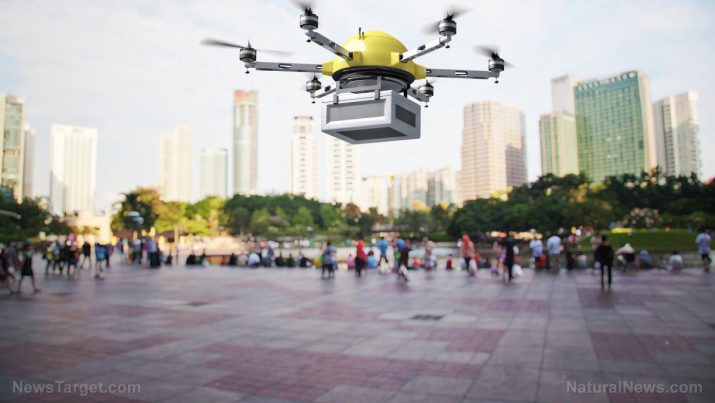
Technology from the movies is on the way: A look at the many ways it will change our future
Monday, October 16, 2017 by Robert Jonathan
http://www.futuresciencenews.com/2017-10-16-technology-from-the-movies-is-on-the-way-a-look-at-the-many-ways-it-will-change-our-future.html

Science fiction may become reality sooner rather than later.
Of course, when predictions about the future are thrown around, past performance is no guarantee of future results, as they say in the financial industry.
A 10-part anthology series airing on Channel 4 in the U.K. called “Electric Dreams” explores the works of Blade Runner author Philip K. Dick, the prolific and ahead-of-his-time sci-fi author who passed away in 1982. It will premiere in 2018 on Amazon Prime.
Many of Dick’s novels and short stories have been made into movies, including the cult classic Blade Runner.
This British show may or may not be connected to the promotion for the Blade Runner sequel, Blade Runner 2049, which premiered on October 6 in theaters across the country.
Based on research from more than 100 experts conducted by a futurologist for “Electric Dreams,” the Daily Mail detailed the innovations that humanity can anticipate.
Concepts that were once confined to make-believe and fantasy such as space tourism, submarine trains and personal flying pods are all on the horizon and set to be ingrained into every day life in just 50 years.
Those under the age of 25 can look forward to enjoying implanted technology to constantly monitor their health, traveling in personal flying pods rather than cars and never missing out thanks to joining events as a hologram. If this isn’t outlandish enough, there will also be supersonic trains that travel underwater without tunnels, thought police, who can detect a crime before it has been committed, and invisibility cloaks.
Parenthetically, Dick created the “pre-crime” concept in the short story “The Minority Report,” which was made into a film with Tom Cruise.
The Daily Mail added that when robots take over mundane tasks, humans will be able to take more vacation time, including holidays in outer space and “virtual” holidays. How all this factors into the already serious obesity epidemic remains to be seen. The more leisure time prediction assumes that robots will remain friendly, which is also an open question.
The scenario is not completely rosy perhaps. For example, as Natural News reported earlier this year, Tesla and SpaceX CEO Elon Musk apparently claims that humans must become the equivalent of cyborgs for the purposes of establishing a direct connection with machines if they want to avoid becoming obsolete. Musk now owns a medical research start-up company that is developing the technology to hook up the human brain to computers. Musk has long warned that rapidly advancing artificial intelligence could destroy human life as smarter and more intuitive robots emerge. Natural News founding editor Mike Adams has also sounded similar warnings. (Related: Read more about futuristic innovations at FutureScienceNews.com.)
Elsewhere in the U.K., students at a London arts university participated in a design competition sponsored by French automobile manufacturer Renault to design vehicles of the future. The winning entry from Central Saint Martins University of Arts London “called The Float, uses magnetic levitation instead of wheels to look like a bubble hovering towards its next destination. Coming to a road near you in less than a decade, apparently,” the Daily Mail explained.
Here in the U.S., two engineers who say they were inspired by “inventor” Robert Downey Jr., the Ironman star, have created an underwater, four-motor jetpack. In the video below, Ryan and David of the “Eclectical Engineering” YouTube channel chronicle their experiment, including testing it in a lake near Berkeley, Calif., as well as in a swimming pool. The results seem to suggest that the jetpack can power a human faster than Olympian Michael Phelps can swim on his own.
Futurist Dr. Ian Pearson, who conducted research for the “Electric Dreams” TV series, summarized what’s around the corner in relation to emerging technologies.
Our human quest for innovation is relentless and we will continue to see a whole raft of developments as ideas that were once features of futuristic sci-fi books and TV series become not only a reality but an accepted part of our everyday lives.
Sources include:
Tagged Under: Tags: emerging technology, future science, future technology, futurism, Philip K. DIck, predictions, robotics, science fiction, scifi





